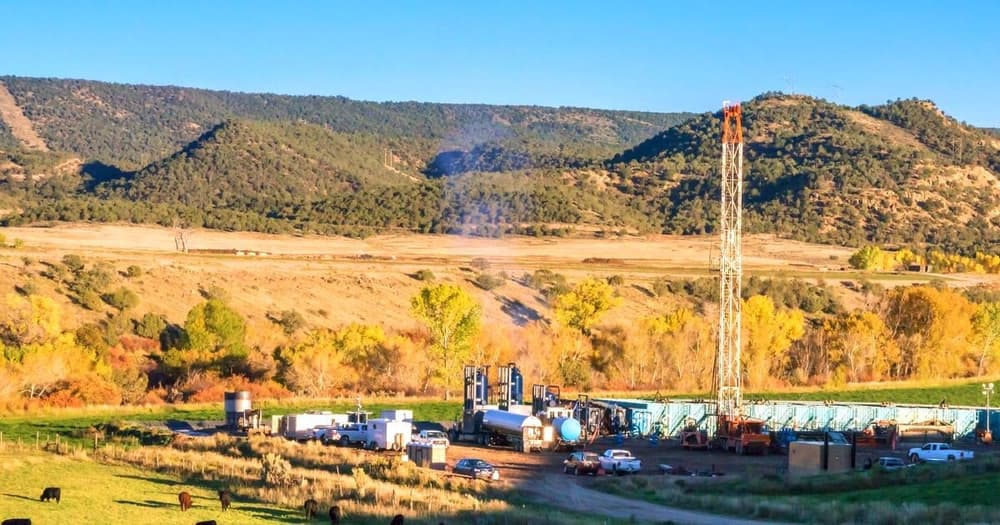When you think of the term “labor”, do you think about hard work?
The workforce of the oil and gas industry is full of laborers, individuals who spend their days doing the “grunt work” to ensure the safe and efficient production and transportation of oil and gas.
This “grunt work” is not undervalued, by the way. Labor jobs and entry-level positions are the heart and soul of the oil and gas industry!
Are you interested in learning more about labor jobs. Keep reading to find out what they are and why the industry needs them:
What Are Labor Jobs?
Generally speaking, a laborer is an individual who works in manual labor jobs that utilize building structures using a variety of tools and heavy equipment.
When it comes to the oil and gas industry, this is where most careers begin. Most labor positions do not require experience and are considered “entry-level” positions.
However, that doesn’t mean you should quit your job and jump into the industry without preparation. There are certain skills and considerations you should think about before seeking a job as a laborer:
- Are you in decent physical shape? Can you lift at least 50 lbs throughout the day?
- Do you have any serious health conditions?
- Are you 18 years old (or older) with a valid driver’s license?
- Are you okay with working long hours when you start out? (i.e. 12-14 hour days, 7 days a week)
- Are you medically clear to operate heavy machinery?
- Do you own the necessary protective gear? (boots, glasses, gloves, etc.)
- Are you willing to relocate?
- Are you prepared for unstable employment? Many entry-level labor jobs fluctuate.
While you only need a high school diploma or equivalent to begin your career in the oil and gas industry, having additional training can help increase your chances of getting the job.
Types of Labor Jobs
There is such a wide variety of labor jobs in the oil and gas industry that it would be impossible to list each one here.
However, here are some examples of entry-level oil and gas jobs:
- Drilling maintenance
- Painters
- Roustabouts (involves maneuvering supplies around the rig for other workers)
- Drivers (requires a CDL or commercial driver’s license)
- Pipeline installers
- Pipeline maintenance
- Cleanup (oil spills, accidents, etc.)
This is just a sampling of the labor jobs available in the oil and gas industry. Check out our job opportunities to see what labor positions are available right now!
Why Are Labor Jobs Important?
All work in the oil and gas industry is invaluable - from the experienced and educated engineer to the driver moving the product from point A to point B.
In an industry that relies on productivity, especially during economic downturns, companies do not hire extraneous individuals to get the job done - every employee of every oil and gas company around the globe plays a key part in the industry’s success.
In fact, according to Public Safety Canada, natural gas workers and petroleum workers were deemed essential in relation to COVID-19 lockdowns. This covered workers, even laborers, who worked at and on sites such as refineries and offshore rigs.
Do Laborers Make Good Money?
The answer to that question is relative but, overall, the oil and gas industry provides one of the best pay scales for unskilled laborers. An entry-level position, for example, can earn you over $35,000 per year!
To some that may seem low but, considering that you can begin as a laborer without a college degree, it can make for a comfortable living.
Plus, with laborer jobs, there are plenty of opportunities for advancement. Over time, you can work your way to a managerial position without requiring a higher degree. - and many companies prefer to promote unskilled laborers who have gotten their hands dirty instead of educated individuals with no experience.
Other Benefits of Being a Laborer
Apart from the pay scale and opportunity for advancement, being a laborer in the oil and gas industry also offers these benefits:
- Teamwork: Being a laborer is a team-oriented position. Safety relies on crews working together as a team.
- Travel Opportunities: As mentioned above, you may have to relocate for a laborer position which is a great opportunity to travel.
- Rewarding Work: Those who perform manual labor for a living experience increased job satisfaction and lowered stress.
Plus, no matter what condition the oil and gas industry is in, laborers are always needed so job opportunities are always plentiful.
Speaking of job opportunities as a laborer, why not check out Energy Job Shop’s current posting for laborer jobs in Canada and the US? No matter your level of expertise, there is a job out there just for you!
Laborer Jobs in the United States

